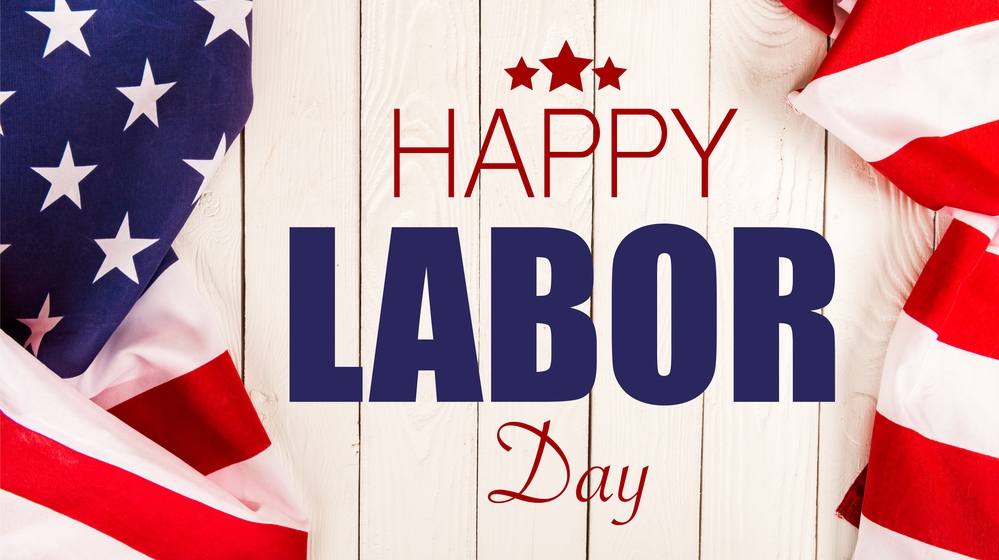Labor Day, a day of rest and celebration, holds a special place in American culture. It’s a time for barbecues, parades, and the unofficial end of summer. But do you know how it all began? Let’s dive into the intriguing history of Labor Day.
The Birth of Labor Day
In 1882, a man named Matthew Maguire, a machinist and secretary for a company, first proposed the idea of Labor Day. It’s fascinating to note that Oregon was the trailblazer, making it an official holiday in 1887. By the time it gained federal recognition in 1894, 30 states had already embraced this special day.
The Pullman Strike
The late 19th century marked a period of success for George Pullman, the founder of the Pullman Railroad Sleeping Car Company in Chicago. However, as fate would have it, a nationwide recession hit in 1893, leading to a decline in orders for his railroad sleeping cars. This economic downturn resulted in job losses, layoffs, and reduced wages for many workers. The cost of living, however, remained stubbornly high.
The Rise of Eugene Debs
During these challenging times, a young worker named Eugene Debs emerged as a leader. He spearheaded a strike against the Pullman Company, prompting railroad workers across the nation to boycott Pullman cars. This protest escalated into rioting and even the burning of railroad cars. Matters took a national turn when the disruption affected mail delivery. In response, President Grover Cleveland declared the strike a federal crime and deployed 12,000 troops to quell the unrest, tragically resulting in casualties.
The Birth of Labor Day
Ultimately, it was Congress that paved the way for the official recognition of Labor Day. Rush legislation was approved, making it a national holiday. Grover Cleveland, eager to appease the disgruntled workers in an election year, signed it into law just six days after the strike’s end. He chose the first Monday in September as the date for this new holiday.
Labor Day Today
Today, Labor Day is not just a day of rest and festivities; it’s also a significant retail event. Retailers take advantage of the large number of customers free to go shopping, making it one of the biggest sale weekends in America, second only to the Christmas season.
Symbolic End to Summer
For many, Labor Day symbolizes the end of summer. It used to be the last day when it was considered fashionable to wear white or seersucker. While seersucker may have fallen out of fashion, the tradition of celebrating Labor Day remains as vibrant as ever.
Football Season Kickoff
In the world of sports, Labor Day marks the beginning of the NFL and college football seasons. College football typically kicks off its first games the week before Labor Day, while the NFL traditionally starts the Thursday following the holiday. It’s a time when football enthusiasts eagerly welcome the action on the field.
In conclusion, Labor Day, with its rich history and cultural significance, serves as a reminder of the struggles and achievements of American workers throughout the years. As we enjoy this day of rest and merriment, let us also reflect on the sacrifices and hard work that have shaped our nation.
The American Worker’s Triumph
Labor Day is not just about picnics and parades; it’s a tribute to the American workforce and their indomitable spirit. Throughout history, workers have united to demand better working conditions, fair wages, and job security. The story of Eugene Debs and the Pullman Strike is just one chapter in this larger narrative of labor rights and social progress.
The Economic Impact
While Labor Day marks the end of summer, it also serves as a crucial economic indicator. Retailers eagerly anticipate this holiday as it signals a boost in consumer spending. It’s a time when people take advantage of the long weekend to shop for back-to-school supplies, furniture, and appliances. This economic activity not only benefits businesses but also contributes to the overall health of the economy.
The Cultural Shift
As our society has evolved, so has the meaning of Labor Day. While it initially celebrated the achievements of the labor movement, it has also become a symbol of the transition from summer to fall. It’s the time when we bid farewell to beach vacations and welcome the cooler weather with enthusiasm.
Labor Day in the 21st Century
In today’s digital age, Labor Day has also found its place on the internet. Online retailers offer exclusive deals, and social media platforms buzz with Labor Day greetings and posts. It’s a testament to how this holiday has adapted to modern times while still preserving its historical significance.
Supporting American Workers
As we enjoy the long weekend, it’s essential to remember the values that Labor Day represents. It’s a day to acknowledge the hard work and dedication of the American workforce, past and present. Supporting local businesses, advocating for workers’ rights, and appreciating the contributions of labor unions are all ways we can honor the spirit of Labor Day.
Conclusion
In conclusion, Labor Day is more than just a day off work; it’s a day that pays homage to the history of the American labor movement. From its humble beginnings in the late 19th century to its modern celebration as a time of rest and reflection, Labor Day remains a vital part of our national identity.
As we gather with friends and family on this special day, let’s not forget the sacrifices and struggles that have shaped our workforce. Let’s celebrate the achievements of American workers and look forward to a future where labor rights and fair wages continue to be at the forefront of our society.
So, enjoy your Labor Day festivities, and take a moment to appreciate the legacy of hard work and determination that has made our nation strong.



